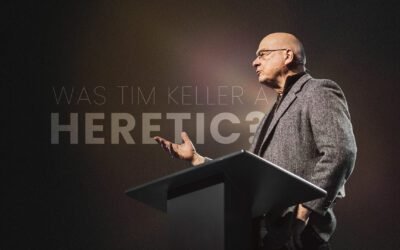If you prefer to listen on audio, you can do that below or on APPLE or SPOTIFY.
CLICK HERE to download the worksheet for the session.
Below you will find my notes for this lecture which includes content I had to skip over in the live event.

In Canada, since 2021 over 100 churches have been burned or vandalized without any major response from our leaders or media. A town in Ontario was fined for not recognizing Pride month and flouting the flag. Woke ideology has infected our education, politics, entertainment, and business. Increasingly, actually holding to Christian convictions on a host of topics is likely to get you cancelled, fired or worse.
In my last session, we looked at understanding the woke ideology of our times. In this sesson, we’re going to focus on what do we do now. How do we recover lost ground and continue to advance the Kingdom of God in these hostile times?

There is a legend of Ernest Shackleton, a daring explorer who put out an ad in 1909 recruiting men for his Trans-Antarctic Expedition in a time when ships were made of wood and men were made of steel. It read:
“Men wanted for hazardous journey. Low wages, bitter cold, long hours of complete darkness. Safe return doubtful. Honour and recognition in event of success.”
As the story goes, he was flooded by applications from hardy sailors who were inspired to rise to the daring mission. Men need mission and challenge. Are you such men? Because the mission we’re being called to take part in likewise will be fraught with dangers and challenges ahead. But unlike Shackleton’s ad, the hope of glory is eternal.
Today, we need men of Issachar who know the times and what to do (1 Chron. 12:32). But we won’t know what to do unless we understand the mission.
Recovering the Gospel of the Kingdom
Many Evangelical Christians today when they hear the word “Gospel” only think about “justification by faith” and seldom about the Gospel of the Kingdom that the apostles proclaimed.
Part of the problem today is the sub-biblical language that we use to speak of the Gospel. The typical Evangelical gospel presentation usually involves “asking Jesus into your heart” and “accepting him as your personal Lord and Saviour.” Yet nowhere in the Bible do we find an example of this language being used. We don’t find Peter on the day of Pentecost saying, “OK now, with every eye closed and heads bowed, raise your hand if you want to accept Jesus into your heart as your personal Lord and Saviour.”
Now, it is true that Jesus is LORD and Saviour. But he is LORD whether once accepts him or not. Jesus doesn’t need our acceptance, we need his. The Gospel isn’t about how we personally accept Jesus into our heart, but rather how He accepts us into His Kingdom.
We need to abandon preaching a truncated gospel and recover the proclamation of the Gospel of the Kingdom as God’s heralds and ambassadors in this world.
The Meaning of the Kingdom
Some Christians think or act as if the Kingdom of God and the Church are the same thing. However, the Church is not the Kingdom, but the Church is an important part of the Kingdom.
So what is the Kingdom?
The Kingdom of God is a divine political order that stands over and against the kingdoms of this world. Jesus said it is not “of” this world (meaning that it does not derive its source from this world) but rather from heaven. While its source of power and authority are not from this world, it is manifested in this world.
The Kingdom of God is the rule and reign of Christ through his Law-Word over every single person, institution, nation, and square inch of this created cosmos. It encompasses all of reality—material and immaterial—and all spheres.
As Dr. R.C. Sproul wrote,
“The kingdom of God is wherever God reigns, and since He reigns everywhere, the kingdom of God is everywhere.”
He notes that,
“The whole Old Testament called attention not to a kingdom that would simply appear in people’s hearts, but to a kingdom that would break through into this world, a kingdom that would be ruled by God’s anointed Messiah. For this reason, during His earthly ministry, Jesus made comments such as, “If I cast out demons with the finger of God, surely the kingdom of God has come upon you” (Luke 11:20). Similarly, when Jesus sent out seventy disciples on a preaching mission, He instructed them to tell impenitent cities that “The kingdom of God has come near you” (Luke 10:11b). How could the kingdom be upon the people or near them? The kingdom of God was near to them because the King of the kingdom was there. When He came, Jesus inaugurated God’s kingdom. He didn’t consummate it, but He started it. And when He ascended into heaven, He went there for His coronation, for His investiture as the King of kings and Lord of lords.”
The Centrality of the Kingdom in Scripture
Perhaps part of the reason for the lack of consideration of the Kingdom today is that Christians fail to see its centrality in Scripture. It’s all over the Bible, but for the sake of time we’ll focus briefly on Matthew. Matthew’s Gospel alone mentions Kingdom 54 times.
Matthew’s Gospel of the Kingdom
Matthew begins his gospel by establishing Jesus as the promised king from David’s lineage (1:6; 2:2). We then see both John the Baptist and Jesus proclaiming—not justification by faith alone—but “repent for the Kingdom of God is at hand” (3:2; 4:17; 4:23). Jesus says that those in his Kingdom are the poor in spirit who are persecuted for righteousness sake (5:3–10) and that whoever relaxes his law will be least in the Kingdom (5:17–20). He exhorts his disciples to seek first the Kingdom (6:33) and warns that calling him “Lord, Lord” but not doing his will does not guarantee entrance into the Kingdom (7:21–23). He proclaims the Gospel of the Kingdom throughout all the cities and villages (9:35) and send his apostles to proclaim the Kingdom (10:7).
Jesus points to the fact that he casts out demons by the finger of God to prove that the Kingdom had indeed come and that he was the one who came to bind the strong man (Satan) and plunder his house (12:28–29). He tells parables of the sower, the wheat and tears, the mustard seed and leaven to illustrate that the Kingdom would be mixed with good and bad, yet it would grow to take over the world (13:18–33). He tells other parables about the incomparable worth of the Kingdom like hidden treasure and a valuable pearl (13:44–46).
This theme continues until the final chapter, where he gives the King’s Commission which we’ll look at more detail shortly. We could trace this theme of Kingdom all throughout the rest of Scripture because it is central to the Bible’s narrative.
The Extent of the Kingdom
The Gospel brings us into the Kingdom of God that makes totalizing claims on us. Dr. J. Gresham Machen, one of the founders of Westminster Theological Seminary, wrote:
“The Christian cannot be satisfied so long as any human activity is either opposed to Christianity or out of all connection with Christianity. Christianity must pervade not merely all nations, but also all of human thought… The Kingdom must be advanced not merely extensively, but also intensively. The Church must seek to conquer not merely every man for Christ, but also the whole of man.”
John Calvin once said it is the task of the church to make the invisible kingdom visible. The Gospel transforms us into Kingdom citizens with a new identity and new obligations that extend to every area of life. Thus, it also creates a new culture.
Many churches have a radically deficient discipleship model that stops at just giving people the basics of justification and atonement, some focus on personal piety, spiritual disciplines and church ministries (all of which are important)—leaving Christians to figure out the rest of life without much Scriptural application.
The author of Hebrews rebukes his audience at the end of chapter 5 that they are still on milk instead of solid food, even though by now they should be teachers. It is interesting to note that what he defines as “milk”. It is continuing to be stuck on basic teachings about repentance and faith, baptism, the resurrection and eternal judgment. Yet this is what fills the content of most pulpits every week without going any deeper. It is ultimately a failure to declare the “whole counsel of God” (Acts 20:27). It is no coincidence that this rebuke comes with a warning of apostasy. Churches that don’t disciple their people to full maturity risk them falling away from the faith because they haven’t been equipped for the battle.
Remember: in every area of life, you are always being discipled, it’s just a matter of by whom and for what kingdom.
The Place of Piety
There is a big difference between pietism and piety. Pietism is holiness for holiness’s sake. It confines the faith to the church and private prayer closet. But piety is holiness for the Kingdom’s sake.
Personal piety is not the goal of the Christian life, it is preparation for the purpose of the Christian life—which is to glorify God. One of the main ways we do this is by seeking to advance His Kingdom. As 2 Timothy 2:21 says: we are to prepare ourselves to be an instrument of honourable use. It would be senseless to only clean a cup or plate but never put it to use. Piety and personal holiness are like that.
It is essential that we live holy lives, but it is holiness for a purpose—not to be an unused decorative china plate, but rather to be put to use in this world by the Master for His glory.
Our Commission from the King
Perhaps another problem is how Christians misunderstand the scope of the Great Commission.
In Greek, it is clear that the main verb of the Great Commission is “to make disciples”. Many people assume the Great Commission means personal evangelism such as sharing your faith one-on-one with someone. While that is certainly included in this command, the object of the verb, “to disciple” is “all the nations”. We are to disciple ALL THE NATIONS! A nation is far more than just a collection of individuals. It implies culture, politics, civil government, laws and all of the other aspects of society. This is what Jesus commanded us to disciple.

Also, notice the content of that discipleship—obedience to all his commands. It is extensive. The Bible speaks to all areas of life, and so too must our discipleship of the nations. Had it not been for Jesus first declaring his omnipotence in heaven and on earth, we should rightly recoil at this. Thus, we don’t just go, we must “therefore” go. As Dr. Kenneth Gentry notes,
“His “all authority” over “all the nations” demands we preach His crown rights over all men and all their institutions, cultures, societies, and nations. The saving of multitudes of individuals must eventually lead to cultural Christianization under Christ’s rule and to His glory by His providence, in conformity with God’s creational purpose.”
Looking forward, Revelation 11:15 says that “the kingdoms of this world are become the kingdoms of our Lord, and of his Christ…” Note that it does not say that the kingdoms of this world have become the Church. Note also that it is not some one-world nationless globalist uptopia at the end—there are still plural “kingdoms of this world”.
The end goal of history is Christian nations, not merely unconnected individual believers. That’s what we’re taught to pray for in the Lord’s prayer—that His Kingdom would come here on earth as it is in heaven. How much is God worshipped and obeyed in heaven? Well, that’s how much we should desire to see it done here on earth. And why would we pray for something that we never endeavour to see made a reality?
Puritan commentator, Matthew Henry, summarizes the Great Commission this way, “Do your utmost to make the nations Christian nations.” As Christians in Canada, we should desire to see Canada become a Christian nation again.
It’s been done before
For those who think this to be wishful thinking. Let’s not forget that Christianity started as a seemingly obscure Jewish sect in the Judean backwaters with only a handful of scared followers. But, it grew over four centuries to displace the pagan religion of the superpower of the time, the Roman Empire.
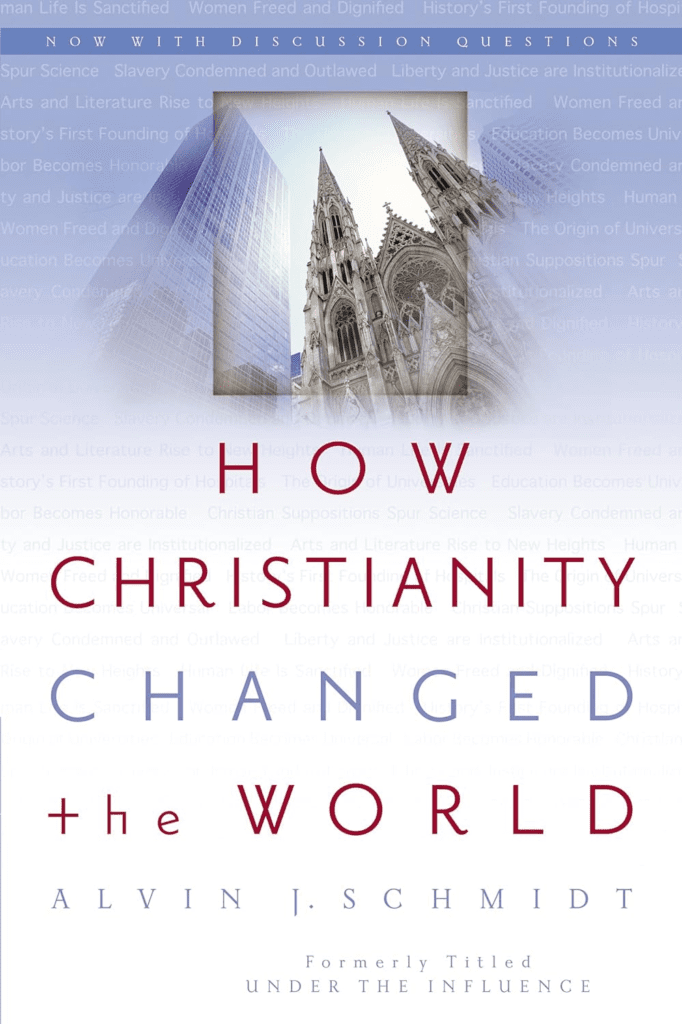
Underdog stories are part of the DNA of our faith! Remember that God likes to use the weak and small things of this world to shame the strong (1 Cor. 1:27).
Our history is one of Christianity’s pervasive blessing upon the world through ordinary saints. Christianity has given the gift of the language and writing to many different cultures as a result of Bible translation from missionaries. The world can’t help but think using language shaped by Christianity.
Professor Alvin J. Schmidt in his brilliant book, “How Christianity Changed the World” documents how Christianity brought the sanctity of all human life, elevated sexual morality, brought freedom and dignity to women, built hospitals and healthcare, made education widespread, transformed labour and economics, gave foundations to science, liberty and justice, abolished slavery, impacted the arts, music, and literature and significantly influences our calendar of holidays, and the words, symbols and expressions we take for granted. He is correct when he concludes that, “history and civilization owe Christianity a tremendous gratitude.” Even atheist historians such as Tom Holland must acknowledge that,
“The West, increasingly empty though the pews may be, remains firmly moored to its Christian past… Christianity may be the most enduring and influential legacy of the ancient world, and its emergence the single most transformative development in Western history.”
Several historians have documented the explicitly Christian heritage of Canada.

On Canada’s coat of arms, “A Mari usque ad mare” is taken from Psalm 78—explicitly citing the dominion of Christ over Canada. This is why the Fathers of the Confederation named the nation the Dominion of Canada. Evangelical historian, Mark Noll, notes that their vision for Canada was a Christian nation that rivaled the culture of the United States. Canada Day was originally called Dominion Day—explicitly recognizing the sovereignty of God over the nation. The Peace Tower and several Parliamentary buildings in Ottawa have various Bible passages inscribed in stone. Parliament’s memorial chamber has references to Jeremiah 23:5 and Nahum 1:7. Neil Semple notes in his book, “The Lord’s Dominion” that the Canadian Church sought to instill Christian principles in the public square to preserve social stability and guide the country’s conscience.

Steven R. Martins in his book on Christianity in early Canada writes that,
“It ought to be known that there was such a thing as a ‘Christian Canada’… and there is hope, in God’s providence, for a renewed conversion of our nation. It only follows that if our faith is in a sovereign and righteous God, infinite in power and strength, with a gospel that can transform minds and hearts, then we should expect the church to adopt a victorious outlook toward history…”
It can be done again
Conservative scholars such as Dr. Stephen Turley in his book, “The Return of Christendom”, spectate that even with the seemingly rising tide of secularism that we are possibly on the brink of a conservative Christian tsunami. They cite three major factors: birth rates, education, and a resurgence of socio-political conservatism.
In terms of birth rates, it’s simple math. Secular liberals are not having babies and religious conservatives are. In 2002 in the US, secular women had on average only 1.5 children per couple while conservative evangelical women had 2.5 children. If these numbers hold, evangelicals would increase in population from 50% to 62.5% in one generation, 73.5% in two generations and within 200 years they would represent 99.4%! Meanwhile, secularists would begin a steady decline after 2030 to a mere 14–15% of the US.
Now, something that affects this is the rate of immigration. Many of these immigrants are coming with Eastern religions such as Hinduism, Islam, Sikhism, etc. and usually have larger families than the average Canadian. So, depending on how things go, the religious landscape of Canada could look quite different in the coming generations.

Another factor is if the children of Evangelicals stay in the faith. There has been a growing trend toward Christian education. Especially after the events of 2020 where many parents saw the atrocious level of public education, more and more families have pulled their children out of the woke indoctrination in public schools. The Nehemiah Institute’s studies have shown that on average, Christian homeschoolers or Classical education students perform better and at a higher level than their public school peers. This will undoubtedly affect the types of children who will go on to have prominent influence in society.
Lastly, with the spectacular failure of globalist neo-Marxist politics and worldviews of our secular liberal elites, there has been a resurgence of socio-political conservatism—particuarly among young men. Sometimes referred to as the “red pill” movement, many young men are returning to more traditional views of family, society and politics. Recently, several influential figures have either converted to or publicly expressed their appreciation of Christianity such as Russell Brand, Tucker Carlson, Jordan Peterson and Elon Musk. A recent Lifeway survey indicated that 80% of Christians want their churches to address cultural issues from the pulpit and men in particular want straight answers to the hard questions. This is a ripe mission field, and if we win the men, we win society.
Dr. Joe Boot notes in his book, “The Mission of God”,
“When God’s Word has been applied by fallen people to life and culture (however fallibly), the result has still been the building of the most stable and just civilization known to man, and in recent centuries people have flocked to these nations from around the world for justice, liberty, prosperity and opportunity. It is not chance that made the West what it is.”
So what do we do to recover this?
There are three important biblical concepts I have for us to see the Kingdom continue to advance: building strategically, incrementally, and generationally.
Strategically
Jesus once said that the sons of this age are more shrewd in their dealings than the sons of light (Luke 16:8). That wasn’t a compliment.
Take for example the LBGTQ+ agenda. In a relatively short space of time they went from being a minority with no power who were commonly regarded as sexual deviants, to now being a controlling minority wielding immense cultural and political power. In 2008, even liberal California voters rejected same-sex marriage. Today you can hardly step into a store or public building anywhere without seeing a rainbow flag. That did not happen by accident. They had a plan, they had a strategy and they executed it.

The 1989 book titled “After the Ball” by Marshall Kirk and Hunter Madsen outlined a strategic plan for LGBTQ advocates to change societal attitudes through media, advertising, and public figures. LGBTQ advocates employed propaganda tactics such as desensitization and jamming to gradually normalize and promote their lifestyle in society.
Now, I am not approving their strategy—but they had a plan to accomplish their goals and understood the importance and influence of institutions, education, politics and entertainment to transform the culture. It demonstrates how effective a small, but vocal, and committed minority can be.
If unbelievers who do not have the blessing of God and empowering of the Spirit could accomplish that much toward evil ends, imagine how much more believers could accomplish strategically with God’s blessing towards good ends!
We must start to think strategically: what endeavours will yield the greatest influence for us and the cause of Christ in Canada?
- A country’s laws shape the culture’s conscience since the law gives us knowledge of good and evil.
- Education shapes the worldview and competency of the next generation.
- Entertainment shapes the vision of the good life in the culture’s social imagination.
- The arts shape society’s affections of what is true and the beautiful.
- Business, manufacturing, and entrepreneurship are the driver of the economy and prosperity which influence what sorts of plans can be financed. Big corporations also hold immense cultural sway and have been the biggest pushers of agendas like DEI.
A Decisive Point
If the goal is, for example, to see Muskoka pervasively influenced by Christianity in the next 200 years. What should our first steps be towards accomplishing that goal?
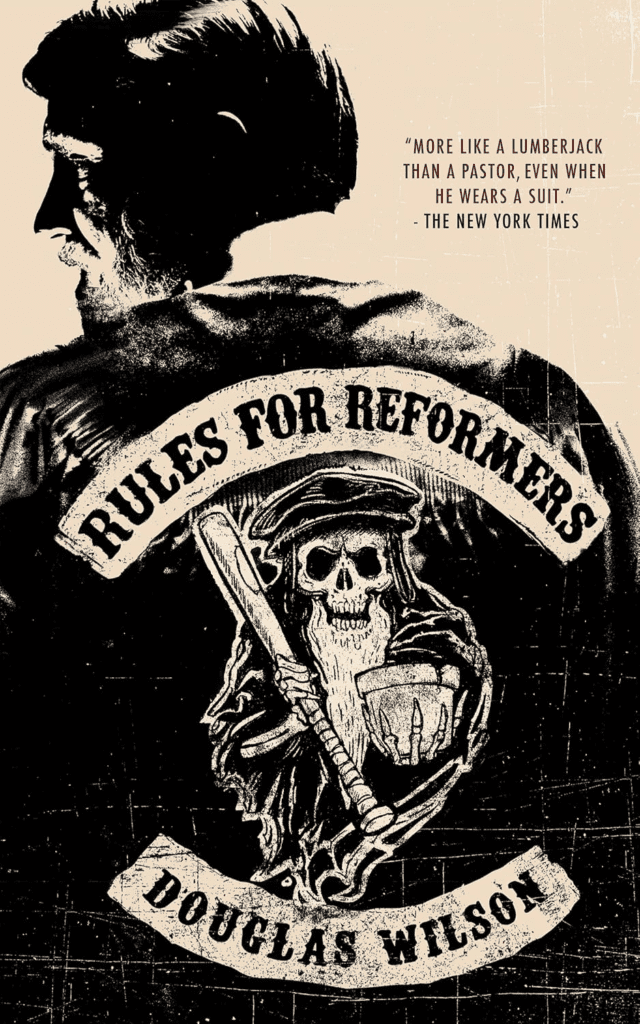
“A decisive point is a place that is significant enough to matter to the enemy if you successfully take it, and insignificant enough to actually take. This means that the selected target is both strategic and feasible… To identify and go after a decisive point is the way to have a disproportionate impact.” (Douglas Wilson)
Without a strategy, you waste a lot of time and energy not accomplishing much. Building strategic beach heads in towns that are big enough to be significant, but small enough to be winnable is an actual strategy with potential for success. The same effort expended in a small town may go a lot further than the same effort in Toronto. Christians generally underestimate the importance of localism. Your local mayor, police chief or school board has way more impact on your day to day life than some beaurocrat in Ottawa.
One principle of war is to concentrate your efforts with force on one decisive point in the adversary’s line. Having Christians of like minds move closer together to intentionally form localities of strength allows for a concentration of resources to be effective. Christians need to focus on one decisive point at a time that will give them a strategic advantage. Chasing too many goals dilutes your potency. Those other goals can be left for another day or another generation to accomplish.
Education
If there is one strategic point to take that will shape the future of a given locality, it would be education. R.L. Dabney noted that,
“The education of children for God is the most important business done on earth. It is the only business for which the earth exists… every parent especially ought to feel, every hour of the day, that, next to making his own calling and election sure, this is the end for which he is kept alive by God-this is his task on earth.”
The Problem with Public Education
The LBGTQ+ agenda is widespread in public schools and often hidden from parents. The website, Exposing SOGI123, lists many books used in Canadian public schools for their sex-ed curriculum. Some of these books are simply pornographic and are actively being used in public schools to groom kids.

However, the of the root concern about the Public Education System is the influence of Marxist ideology in the approach to education itself. Not many know of Paulo Freire, a philosopher of education who has radically influenced Public Education. Yet he is the third most-cited scholarly author in all the humanities and social sciences.
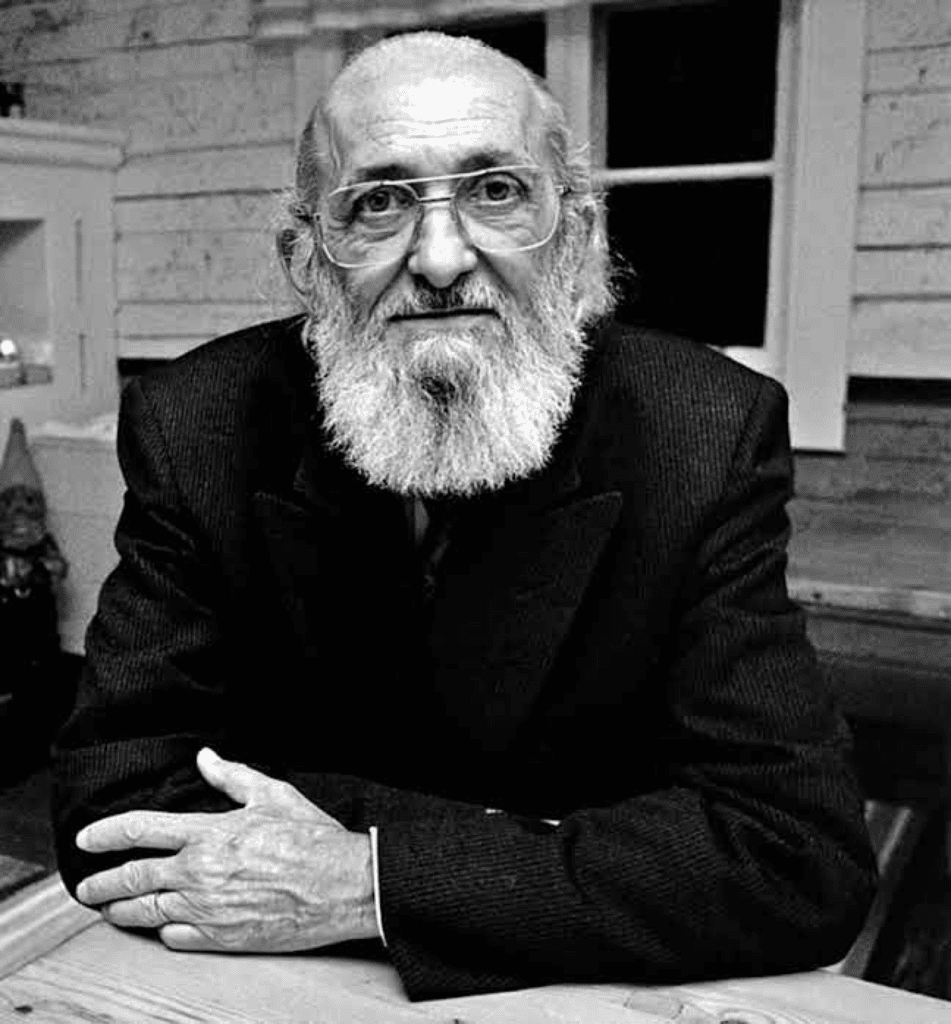
Dr. Lindsay notes in, The Marxification of Education that Freire’s goal was raising a Marxist political consciousness for the purpose of creating a cultural revolution. Freire based his work on people such as Karl Marx, Vladimir Lenin, Che Guevara, Fidel Castro, Mao Zedong, Herbert Marcuse, and Georg Hegel to name a few. The majority of teachers who are trained to teach in public schools today have been trained in Freire’s pedagogy.
The Fraser Institute reports that in Canada,
“One of the most popular textbooks used in education schools is Paulo Freire’s Pedagogy of the Oppressed… Modern-day education professors are, almost to a person, drawn to this philosophy because it appears to fit with an emphasis on social justice.”
So, if you’re wondering how the public schools got so “woke”, it’s not accidental. It’s by design. Teachers training colleges are propagating it. This is why you have woke “Discovery Math” being taught in Ontario curriculums which asserts that saying two plus two equals four is “a white supremacist dog whistle.”
Christian Education
The point is that education is not neutral. Education is either according to Christ or against Christ because it is in Christ that ALL the treasures of wisdom and knowledge are found (Col. 2:3). As Dr. John Frame wrote,
“Modern public schools claim religious neutrality. What this means in practice is that they are relativistic in their values, but dogmatic in excluding Christianity from all substantive discussions.”
Education is fundamentally religious because it imposes some form of morality.
Christians who want secular education to instill anything other than secular ethics are wanting an impossibility. Those who say the children will learn arithmetics in school and morals in church have to wrestle with the math that 2 hours on Sunday is having to compete with 30 hours of indoctrination during the week during a child’s most attentive hours.
In every education, there is an underlying worldview imparted to the students. Jesus himself said that
“A disciple is not above his teacher, but everyone, when he is fully trained, will be like his teacher.” (Luke 6:40)
Unbelieving teachers are not going to teach your child to bow the knee to King Jesus over Caesar. If you have a non-Christian teacher, then according to Jesus, when you’ve been fully trained by them, you’ll be like them.

Douglas Wilson notes that:
“Before we can win the children of this world, we have to stop losing our children to that world… Before we can invite nonbelievers to participate in our believing culture, we have to have one. And in order to have one, we have to pass the faith on to our children in spirit and in truth. There are many aspects to this task, but Christian education is right at the center of it.”
Men, Ephesians 6:4 puts the responsibility on fathers to bring up their children in the fear and admonition of the Lord. You are commanded to raise your children in the “paideia” of the LORD.
Paideia
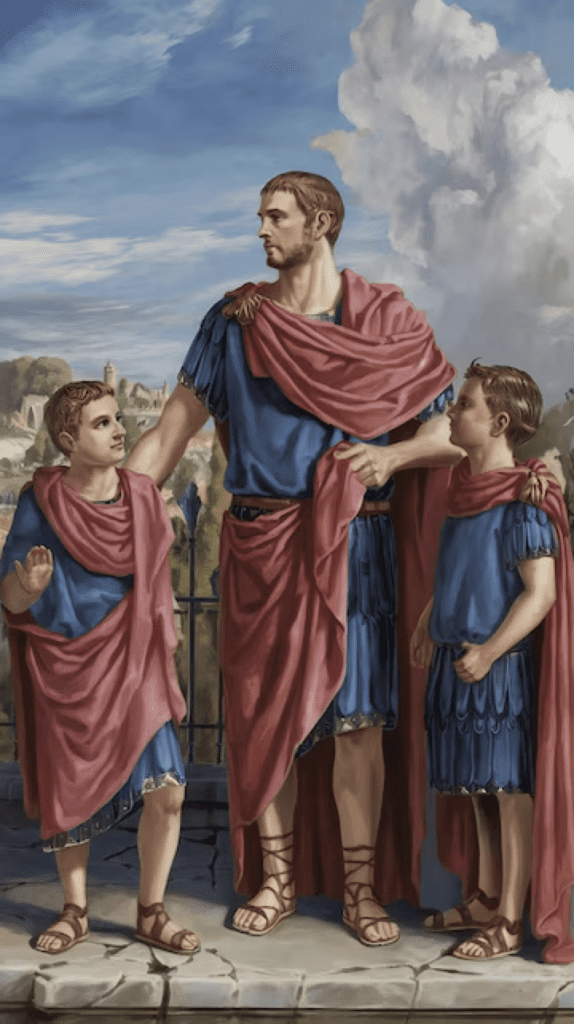
In the Greco-Roman world that Paul was writing in, παιδείᾳ had the connotation of bringing up a child to be a good citizen of Rome. This is why it is used in Acts 7:22 to say that “Moses was trained in all the παιδείᾳ of the Egyptians”—that is to be a good citizen and enculturated with their values. In Roman society, every adult male was to be trained up in the παιδείᾳ of Rome so that they had a good understanding of how the Roman Empire worked, its laws, customs, values and politics. They were to be fully enculturated to be good and active Roman citizens.
Paul is saying that Christian fathers are to bring up their children to be, not good citizens of Rome but of the Lord Jesus Christ and His Kingdom.
The Association of Classical Christian Schools defines it this way,
“Paideia is at one level, the transfer of a way of viewing the world from the teacher to the student. At another it shapes and forms the child in terms of his or her desires, passions, and loves. It is essentially the part of upbringing and education that forms the soul of a human being—and it is key to the formation of a culture. Put yet another way, paideia is a description of the values we actually love, the truth we actually believe, and what we assume about the nature of our world… All schools reinforce some type of paideia… it is the building block of culture, it determines the future of a people.”
We’ve been reaping the fruits of the disfigured παιδείᾳ of secular State-run education.
The Scriptures oblige fathers to give their children a distinctly Christian education. That is, enculturation into a Christian worldview. The form of that may differ (e.g. homeschool, Christian school or Christian Classical education). But the content must be transmitting a thoroughly Christian worldview to our kids who will become the people who shape Muskoka’s and Canada’s future.
Nothing is more powerful to change a culture than paideia. One of the most strategically impactful things Christians can do is to start a Christian Classical Academy or school.
Politics & Government
While the Gospel isn’t primarily about politics, modern Evangelicals don’t realize just how political the Gospel the apostles preached actually was.
Paul was not imprisoned in Thessalonica in Acts 17 for preaching forgiveness, but rather that there was another king, Jesus. The common confession of the Roman world was “Kaiser Kurios” (Caesar is Lord). Christians confessed in opposition to this that “Jesus is Lord.” To proclaim that Christ is Lord meant that Caesar was not. Christians weren’t persecuted by Rome because they had started and odd privatized religious cult worshipping a crucified carpenter’s son. The Romans came to see Christianity as a threat because it proclaimed another King, a higher King to which every knee must bow.
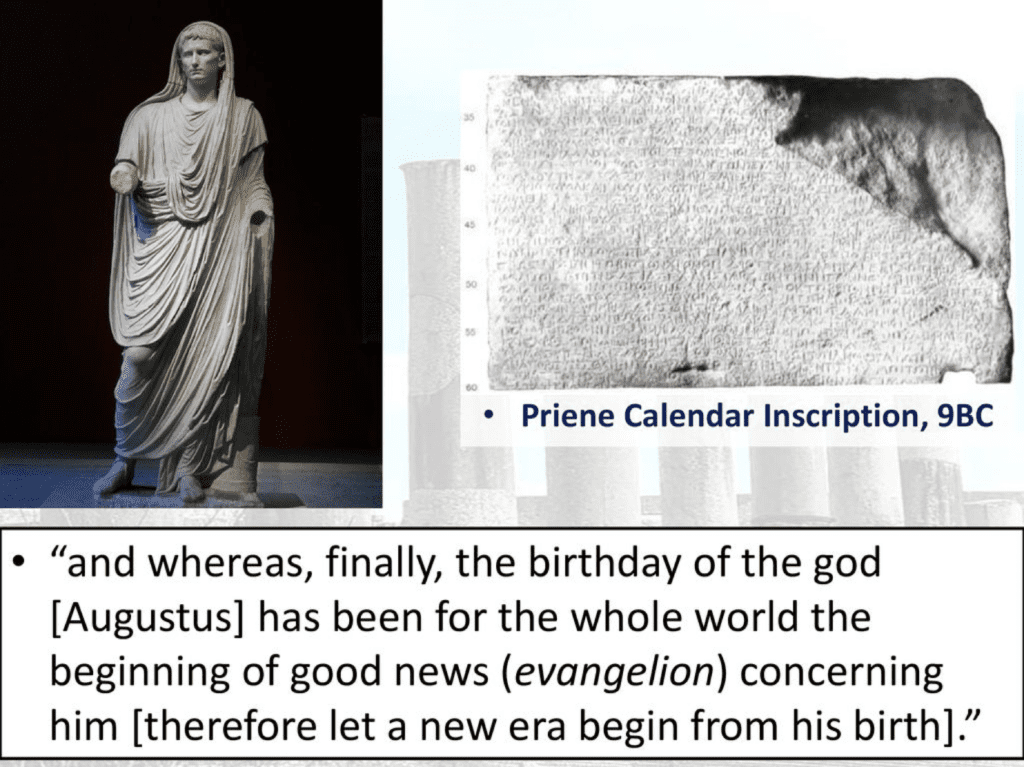
When your tribe or kingdom submitted to the Roman Peace, Rome would nail their euangelion announcement (their Gospel announcement) to a post saying that “Salvation is to be found in no other save Augustus, and there is no other name given to men in which they can be saved.” Sound familiar? That’s because when Peter took that same phrase and applied it to Jesus in Acts 4:12, he was issuing a forceful counterclaim to sovereignty over the Roman State. An inscription on a Roman government building said, “the birthday of the god (Augustus) has been for the whole world the beginning of good news /EVANGELION/ concerning him.” The very Greek word used for Gospel or Good News had political implications in its First Century context.
The Greek term “ecclesia”—often translated “church”—was a political term. It literally means “called out” and referred to a body of citizens regularly summoned as a legislative assembly. Thus, the church is a sort of political embassy—representing the Kingdom of God—but also invading the kingdoms of this world. The New Testament is riddled with political language that we miss as 21st century readers.
The apostles didn’t limit their preaching to “spiritual” things and seemed to make it a point to preach to political figures as well as common people. This is why Paul often found himself in front of civil magistrates calling them to repentance and submission to Christ and John the Baptist loses his head calling out the sin of Herod according to God’s law. Paul’s preaching at Mars Hill to the political elite declared that, in light of the resurrection and coming judgment, “[God] commands all people everywhere to repent” (see Acts 17:30–31).
Paul stayed in prison for more than 3 years when he could have gone free by appealing directly to Caesar for trial as a citizen. It seems like he did that in order to preach directly to Nero and evangelize Nero’s household—explicitly mentioning that there were already some believers there in Philippians 4:22. Many of the apologetic treatises by early Christian writers of the second century were addressed to Roman emperors and officials. Early Christians didn’t seem to have a radical divide between faith and politics.
The Role of Politics
Christless Conservativism won’t fix things. As Doug Wilson has said, “Secular conservatism is like trying to use your pocket handkerchief to slow you down after the main chute has failed.” Today’s Conservatives are just the Liberals of 10 years ago. This is why we need Christians involved in politics. If we’re salt and light, then anywhere Christians are not will inevitably decay in darkness.
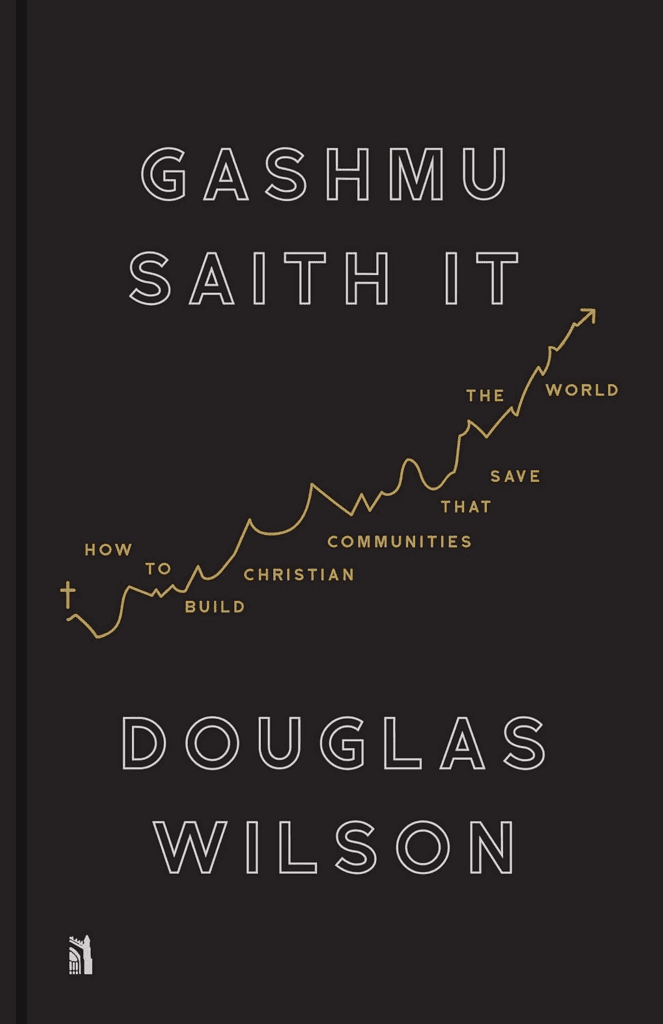
Some Christians take the approach that their only political involvement is voting every few years, then washing their hands of that icky duty. However, this is not the end of our civic duties. We have duties to love our neighbours by opposing bad legislation and promoting good ones, by praying for and talking with our elected representatives, attending town halls, and a host of other ways to be involved for the good of our community. Not every Christian is called to public office, but some of you might be—and you can do that to the glory of God to extend His Kingdom’s reign.
In terms of how cultural change comes about, there are bottom up and top down strategies. The two are not mutually exclusive.
You can have bottom-up revival that changes the population so that they welcome righteousness like in Ephesus, where the Gospel flourished so much that it was putting idol makers out of business (Acts 19). And you can have top-down initiated change as in several Old Testament accounts, when Israel turns from its apostasy when a righteous leader leads the people back to God. God in His sovereignty can and has used both, so we should pursue both with humble dependence on God.
Incrementally
Rome wasn’t built in a day, nor was Christendom’s takeover of that old Roman empire.
If you track with the timing in the narratives of Scripture, you’ll notice that even God doesn’t generally move things forward by leaps and bounds. His normative way of working is gradually. Progress takes time, especially the kind that will have staying power. Flash pan fires are short lived. Jesus himself said in Luke 17:20 that the kingdom is not coming in ways that can be observed, yet it is already in our midst.
Quick revolutionary overthrow is the strategy of the Marxists and ends in further instability and destruction. Christians are not about revolution, but rather Reformation. That is our heritage as Protestants. Our theological forefathers sought to reform the corruptions of the church, not to overthrow it. Today, we have a corrupt culture and should seek to reform it according to God’s Word incrementally over time.
For example, according to the Fraser Institute, in 2024, if you were to pay all your taxes upfront, the average Canadian wouldn’t take home any money until June 13! That’s half the year working without getting paid—you’re basically taxed into becoming a half-slave to the State. Biblically, if the State demands more than God’s tithe, it is functionally usurping Him as Sovereign. Let’s not forget that the US fought a war over a 1–5% tax on tea! So how do we possibly reform such a massively bloated State and taxation? It has to start incrementally—educate people, elect local representatives and push for small reforms.
Remember, Christ’s analogies for his Kingdom’s growth are slow and steady—like a tree that grows to take over the garden and leaven that makes its way through the whole lump of dough. We’re not aiming for quick growth—those are usually weeds anyways. We’re aiming for planting great oaks.
Business
There is a common misconception that the people who are really “sold out for Jesus” go into “full-time Christian work.” But what other kind is there? A part-time Christian is not a converted one!
The Christian businessman, contractor, farmer, baker, homemaker, etc. all do their vocations to the glory of God and service of their fellowmen—which are ways of fulfilling the 2 great commandments to love God and love neighbour. Thus, all work done Christianly is a part of how the Kingdom grows.
For the sake of time, I’ll just leave you with a few quick thoughts:
Firstly, Christians have a higher obligation to other Christians than to non-believers. Galatians 6:10 says, “to do good to everyone, and especially to those who are of the household of faith.” Thus, if we have need of a good or service that we can attain from a Christian brother’s business, we should seek to patronize him over an equal product/service from a non-Christian. One practical way of doing this is having a Church directory of goods and services that church members provide or forming Christian business networks. However, Christian businessmen should not expect that their brothers owe them their business if they provide a sub-par product or service. We should seek to be exemplary in our vocations as a way of honouring Christ, our true Master.
Don’t defraud your brother by guilting him into giving you a discounted rate because he’s a Christian. If anything, we should be willing to give something additional—especially if his service is superior—to see his business flourish. Neither should we try to get his services for free by cornering him and asking for his “advice” after service. Don’t assume that he doesn’t mind because you’ve been doing this to him for years—it’s probably that he just has better manners than you.
Christians should not be afraid of seeking to grow their wealth for the glory of God. Big corporations hold tremendous cultural sway today. Imagine if you had a Christian Disney resisting the woke movement? The world needs men with great means who can take great risks on innovation—look at Elon Musk, for example. If he didn’t have such means, he could not take the risks required to produce such large-scale innovations like Tesla, Space-X or buying Twitter. God in his common grace uses wealthy non-Christians. However, He has also used wealthy Christians to greatly advance the Kingdom and support the mission. Those types of mega-corporations and businesses are not built in an instant—but need a vision and have to start somewhere.
An important part of incrementalism in a locality is building a shared culture. Building a shared culture is immensely important if we want to build something that is bigger than our little niches that last beyond our lifetimes. Like it or not, we are in a culture war. As Wilson notes,
“Just as you can’t fight a naval war without ships, or tank warfare without tanks, you can’t fight a culture war without a culture. The reformation of the church must occur so that there is a reformation of our subculture, and then our subculture will affect the larger polis. Expecting our faith to affect the larger polis when it has not yet changed the average shelf at the local Christian book store is expecting something that is not going to happen.”
There are a ton of other things we could talk about building a shared culture—such as a common language, potlucks, co-ops, shared traditions, inter-connected families, joint services, co-operative community projects, etc. But if we don’t have strong churches and families—the foundation of that culture building project will be shoddy.
What we breed at home and in the church will multiply in society.
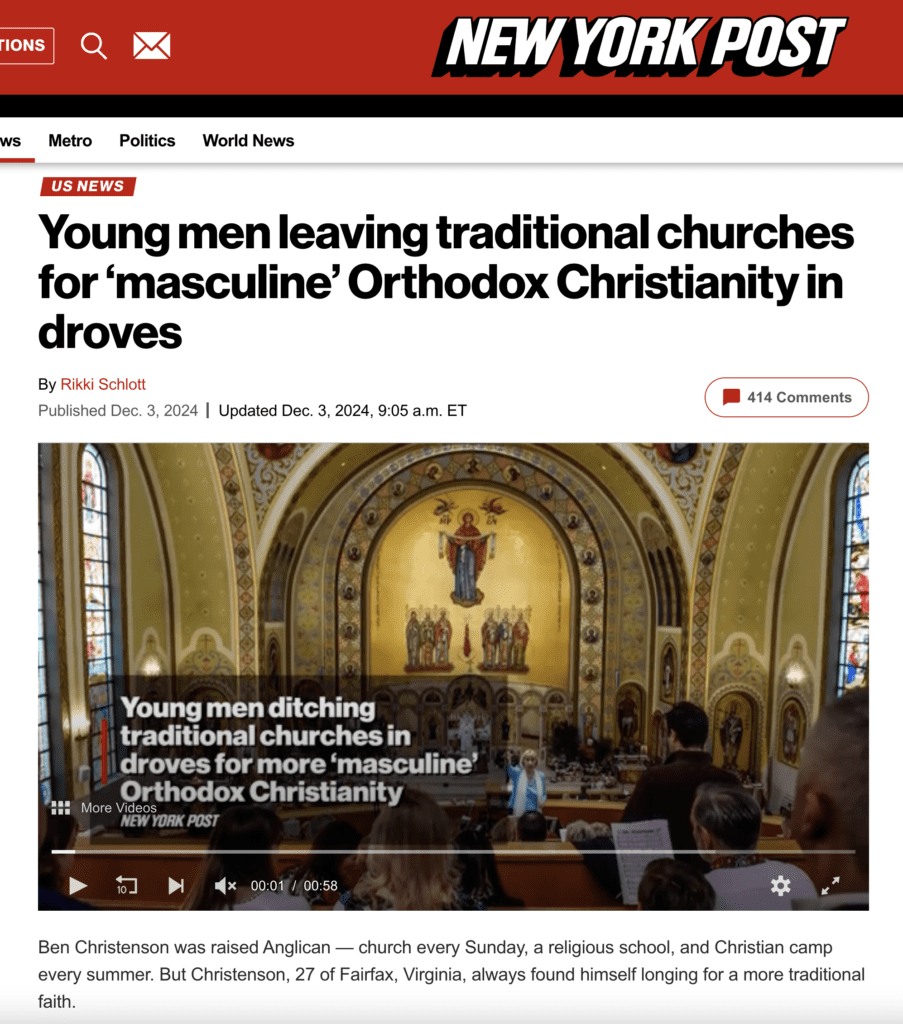
There is a reason behind the trend of young men being attracted to more traditional churches like Catholicism and Orthodoxy over shallow Evangelical pop-culture Churches. It’s a big topic, but one major reason is the lack of historical grounding and depth of tradition in many Evangelical churches today. Today’s culture is one of immediacy and constant change. Long-standing traditions and history are appealing because they give a sense of grounding and stability.
Pastor Zachary Garris writes,
“We live in a day and age where modern academics, politicians, and religious leaders are destroying our traditions. They tear down our statues. They erect ugly buildings. They whitewash our history. We are in a battle for the future, and that means we are in a battle for the past. Young men and women need history. They need tradition. They long for it…
What men need is a masculine Protestantism. They need churches led by male pastors and elders, steeped in biblical liturgy, upholding historic confessions (like the Westminster Confession of Faith), proclaiming the gospel, and teaching the whole counsel of God. They need churches that courageously uphold the Bible’s teaching on male headship, support traditional families, promote godliness and oppose wickedness, and encourage men as they seek to carry out their God-given duties in a world that hates them…
Orthodoxy and Catholicism will win the day so long as Protestants continue to spurn their tradition. So this is my plea for my Protestant brethren—stop trying to be modern and return to the glorious doctrines of Scripture as taught and applied by our Reformation forefathers. Protestants have much to offer. We have a rich tradition. Start embracing it.”
Generationally
We may never see the type of radical change necessary to bring our societies in line with a Bibilcal worldview, but our grandchildren’s grandchildren might. Proverbs 13:22 says that a wise man leaves an inheritance for his children’s children. Christians must think generationally.

The construction of the Notre Dame Cathedral began in 1163 and wasn’t completed until 1345. 182 years—that’s about 4.5 generations. That means that people were planning and laying foundations for a building whose completion not even their grandchildren would live to see! How are we setting up the next generation to complete a building projects that we may never live to see? Can we even dream bigger than ourselves?
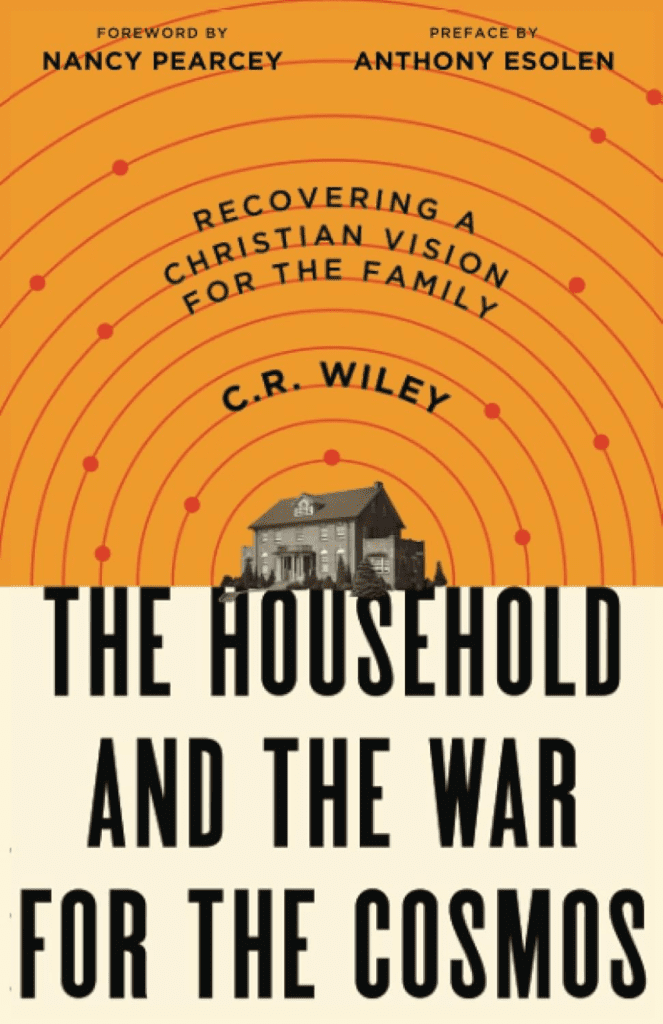
Psalm 127 says that children are like arrows in the hands of a warrior. Today, we may be fighting for our children, but tomorrow we must fight by means of them. Thus, when we seek to make disciples, especially of the types that God gives to you in poopy diapers and cute giggles, we are recruiting and training tomorrow’s warriors and builders.
The Family
As the family goes, so goes the nation. This is why it has been relentlessly attacked by the enemy.
Ideologies such as feminism have been a tool of Satan to corrupt God’s design for the family and rob God’s people of the core of their strength and resiliency. Feminism is basically the idea that women are only valuable when they functionally become men by taking on their roles. Instead of embracing the beautiful complementarity of God’s different design for the sexes, it flattens it and fosters androgyny. In many ways, because feminism basically affirmed that there was no difference between men and women, it paved the way for today’s transgender confusion.
At the core of every family is the father. Thus, to have strong families, we need to recover fathers with godly masculinity.
Godly masculinity is the glad assumption of sacrificial responsibility for the benefit of others.
Many men like to talk about the authority that the man holds biblically—and this is true. However, authority flows to those who take responsibility. If you want more authority, then you have to take more responsibility. When Eve sinned, God came looking for Adam. Responsibility for those under our care is inherent to being a man.

Godly men take responsibility for seeing that the religion of the home is healthy (practicing regular family worship together), the relationships of the home are flourishing, the education of the home is progressing, the safety of the home is secured and the resources of the home are provided for.
Secular culture emasculates men and raises a generation of males who are entitled, don’t take initiative, run from responsibility and commitment and act like the evolved apes their highschool teachers assured them they are.
However, virtuous men act like fathers. They do not look to others to provide for them, but they look to provide for others. The virtue of masculine strength is oriented towards taking responsibility for others. If we fail in this, God will not hold us guilt-less.
Now note: we do not try to build strong education, businesses, governments, or families in order for us to build a strong Kingdom for God. Instead, He has established an invincible Kingdom and told us to seek it first, and all these other things will be added to us. The fact that these other things have not been added to us merely shows us how we’ve failed to truly seek His Kingdom first—perhaps because we’ve not known what we were looking for.
Conclusion
Finally, we must also remember to be joyful. Christians can tend to be pessimistic nervous Nancy’s when they look at the battle in front of us. But if the joy of the Lord is our strength, then laughter is warfare. Let us not become stoic or grouchy humbugs, but rather wise and jolly warriors—fighting and building not because we hate what is in front of us, but because we love what is behind us. Our motto should be, first in, last out, laughing loudest.
In this endeavour to see God’s Kingdom built here in Canada, those who go first to pave the way will likely be subject to much scorn and opposition. It takes courage to be first to go against the prevailing norm. We need men of courage for this task. Men like Nehemiah’s men, who work with a sword in one hand and trowel in the other.
RECOMMENDED READS
- How Christianity Changed the World—Alvin J. Schmidt
- The Household and the War for the Cosmos—C.R. Wiley
- Gashmu Saith It: How to Build Christian Communities that Save the World—Douglas Wilson
- The Mission of God: A Manifesto of Hope for Society—Joseph Boot
- Canada: The Introduction of Christianity in Early Canada—Steven R. Martins
- The Greatness of the Great Commission—Kenneth Gentry
- Rules for Reformers—Douglas Wilson
- Family Shepherds: Calling and Equipping Men to Lead Their Homes—Voddie Baucham Jr.
If you’ve found it helpful, please consider using the buttons below to share this article.


